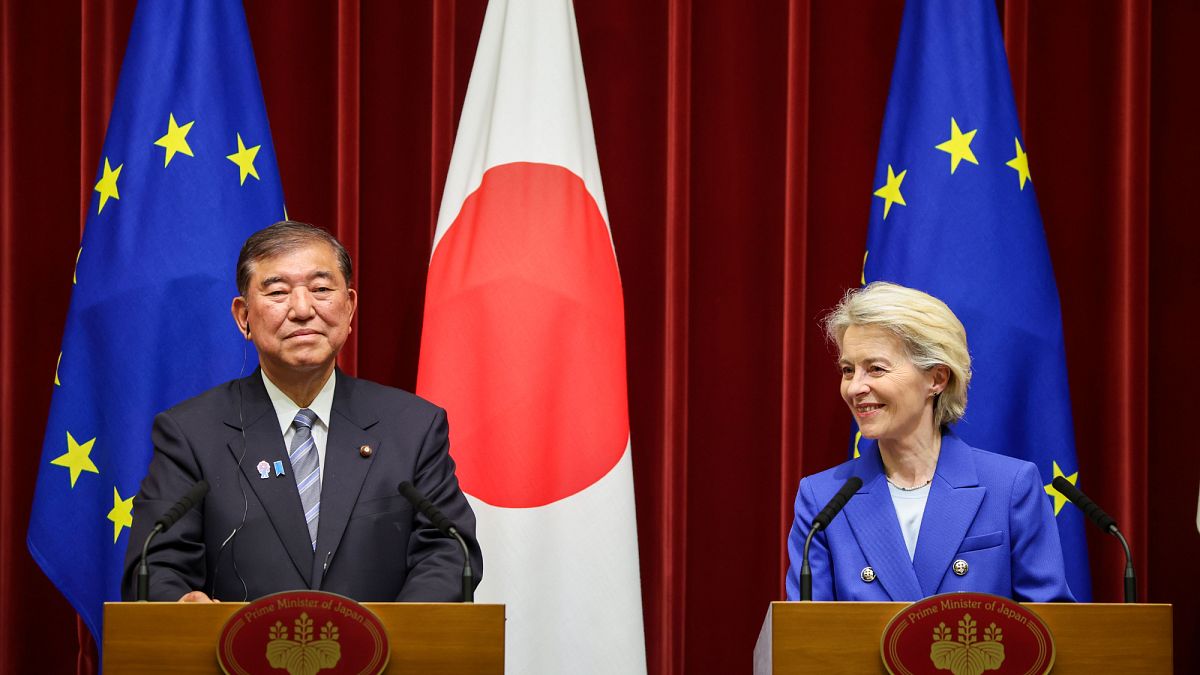Published on
A day after Japan reached a trade agreement with the US on tariffs, the EU and Japan announced plans to strengthen their trade cooperation and combat economic coercion during the 30th EU–Japan summit held in Tokyo on Wednesday.
“The world is changing rapidly. For strategic partners like us, it means becoming even closer to face the realities of our times,” Commission president Ursula von der Leyen said after the summit, stressing this came against a global backdrop “with growing trade tensions and uncertainty, fragile supply chains, the challenge of overcapacity and unlevel playing fields.”
In a joint statement released at the end of the summit, the EU and Japan reaffirmed their support for a rules-based international trade order, with the US challenging global trade norms by unilaterally imposing tariffs on its trading partners.
“We concur together on maintaining and strengthening a stable and predictable rules-based free and fare economic order, including upholding a multilateral trade system with the WTO at its core,” Japanese prime minister Shigeru Ishiba said.
The announcement of a deal between the US and Japan, however, overshadowed the summit’s news, following weeks of difficult negotiations for Tokyo. The agreement announced by US president Donald Trump would set 15% US tariffs on Japanese imports to the US, easing back from a previously threatened 25% levy.
For its part, the EU is facing equally difficult negotiations with the US administration, with no agreement in sight for now. The bloc is currently subject to 50% US tariffs on its steel and aluminium, 25% on cars, and 10% on all other imports.
It is in this troubled trade context that the EU and Japan plan to step up the implementation of the trade agreement that has linked them since 2019. EU firms already export nearly €70bn in goods and €28bn in services to Japan every year and bilateral trade between both sides has increased by 20% since 2019, according to von der Leyen.
The Commission president announced both partners will speed up the implementation of the agreement in areas such as government procurement and sanitary and phytosanitary standards. The EU and Japan also hope for more mutual investments.
On the eve of the EU–China summit, the joint statement also announces cooperation to reduce strategic dependencies, such as on critical materials, on which China implements export restrictions.
The cooperation will expand to economic coercion and non-market policies and practices, with China in both sides’ sights.
Between August 2023 and June 2025, Japan had to face a Chinese ban on its seafood imports. For its part, the EU has several ongoing trade disputes with Beijing, on electric vehicles, dairy products, pork and spirits.

